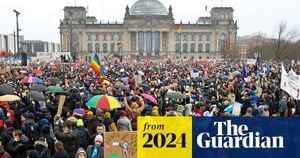South Africa's Finance Minister, Enoch Godongwana, announced the unprecedented postponement of the 2025 National Budget Speech, originally slated for February 19, now rescheduled for March 12, 2025. This delay arises amid significant disagreements within the coalition government over proposed tax increases, particularly the contentious issue of raising the Value Added Tax (VAT) from 15% to 17%.
The Cabinet collectively reached this decision to allow more time for thorough discussions concerning the country’s financial strategies, indicating the importance of unity under the Government of National Unity. Godongwana remarked, "This collective decision gives Cabinet ministers more time to engage on various trade-offs to fund the fiscus." This cooperative approach is aimed at ensuring the budget aligns with the aspirations and needs of South Africans.
The changes to the schedule reflect South Africa's current economic challenges. The country faces a substantial fiscal deficit, estimated at around 4.3% of GDP, amounting to R377 billion (approximately US$20.5 billion). Adding to this complexity, public debt stands at 76.1% of GDP, and the interest costs dwarf those of similarly sized economies. South Africa spends around 5% of its GDP servicing public debt, starkly higher than the averages for developing and upper-middle-income nations.
The postponed budget is not just another document. It serves as the economic spine of the nation, aiming to balance citizen welfare, fiscal sustainability, and growth. The national priorities outlined by the Government of National Unity (GNU) highlight its commitment to uphold citizens' rights and strive for equitable economic growth.
The proposed VAT increase has sparked intense debate, with various stakeholders, including ministers within the African National Congress (ANC), opposition parties like the Democratic Alliance (DA), trade unions, and civil society, voicing concerns about its regressive nature. Critics argue it would disproportionately burden low-income households. For example, the lowest income decile could pay R213 more annually if the VAT is raised, significantly impacting their limited budgets. The nationwide concern is not unfounded—approximately 50% of South Africans live below the poverty line.
Expert commentary reflects these apprehensions, with economic analysts highlighting how poor households typically spend 34% of their income on food. Increasing VAT would push everyday essentials even higher, underlining the necessity for thoughtful deliberation on fiscal policies. "Evidence shows VAT increases affect poor households more, particularly women-headed households," noted one economic analyst.
Meanwhile, those privy to the budget discussions argue the government must responsibly raise revenue aligned with constitutional commitments, stressing the urgency of refining the tax policy. South Africa’s fiscal space is strained, and innovative solutions are required to avoid a bulk of potential pitfalls, such as higher consumer debt ratios and reduced consumption leading to economic degradation.
For the postponement to meet legislative timelines, the Financial Management Act outlines the budget must be tabled before April 1, the start of the new financial year. Hence, allowing the budget speech to be tabled after the new year introduces risks of operational continuity for government departments, which operate under the previous year's budget limits until new allocations are effective.
Despite concerns surrounding the potential complications with meeting G20 commitments, Godongwana assured stakeholders, stating, "South Africa is ready to welcome G20 participants to various engagements being held this month." These events are part of the framework underpinning the nation's active participation within the global community.
This postponement has wider ramifications beyond fiscal projections. It lays bare the fragmented debates on economic strategy and signifies the need for all South Africans to engage actively within the budget process. Michelle Meixieira Groenewald remarked, "South Africans need to become more actively involved in the budget process," encouraging the populace to voice concerns through initiatives like the Budget Tips initiative.
Engagement from diverse societal segments is pivotal to shaping financial governance and ensuring the national budget reflects collective aspirations. The GNU’s approach to consensus—even amid adversity—displays the country's democratic commitment, serving as both encouragement and caution for future budget cycles.
Looking forward, the postponed budget speech presents South Africa with more than just timing adjustments; it's pivotal for sculpting policies poised to benefit all citizens as well as determining how they progress through unprecedented fiscal landscapes.



